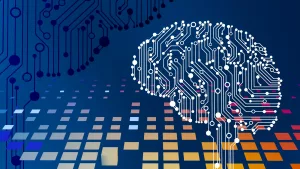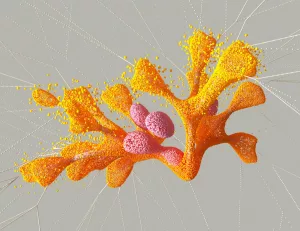When it comes to addressing the unique needs of children with learning challenges, innovative educational technologies are playing a crucial role in enhancing their learning experiences. One such technology is augmented reality (AR), which creates a more interactive and engaging learning environment for these children. By using AR applications, kids can visualize complex concepts in a more tangible way, making learning more accessible and enjoyable. AR technology opens up new avenues for interactive learning experiences by overlaying virtual information onto the real world, providing a multisensory approach to education. This can be particularly beneficial for children with ADHD or autism spectrum disorders who may struggle with traditional teaching methods.
Expanding on Augmented Reality
Imagine a classroom where students can explore the solar system by projecting planets into the room or dissect a virtual frog without any mess. AR does not just make learning interactive; it brings a hands-on approach to topics that are often abstract and difficult to grasp. For example, a study conducted in 2022 showed that students using AR to learn about the human body retained 40% more information compared to traditional lecture methods. For children with learning challenges, this enhanced retention is crucial.
Practical AR Applications
- QuiverVision: This app allows children to color a 2D picture and then bring it to life in 3D through AR, making art and creativity more engaging.
- Elements 4D: This app lets students explore chemistry by visualizing how different elements interact, providing a safe environment to experiment without risks.
Adaptive Learning Platforms: A Closer Look
Another groundbreaking technology is adaptive learning platforms, which personalize the learning experience based on each child’s strengths and weaknesses. These platforms use sophisticated algorithms to analyze the child’s performance and adjust the content and difficulty level accordingly. By tailoring the material to meet the individual needs of each child, adaptive learning platforms optimize learning outcomes and ensure that children remain engaged and challenged at an appropriate level. This personalized approach fosters a sense of accomplishment and self-efficacy in children with learning challenges, empowering them to take ownership of their learning journey.
Case Study: The Success of DreamBox
DreamBox is an adaptive math program that changes its curriculum in real-time based on the user’s input. Recently, a case study involving a school district in Ohio revealed that students using DreamBox for just an hour a week showed a 30% improvement in standardized math scores over a semester. This demonstrates how adaptive learning can significantly enhance educational outcomes.
Assistive Technologies: Beyond the Basics
Assistive technologies are also revolutionizing the way children with learning challenges access educational content. Text-to-speech software, for example, can read aloud text from books or online resources, making it easier for kids with dyslexia or other reading difficulties to comprehend information. This technology not only enhances accessibility but also boosts reading fluency and comprehension skills, empowering children to engage with a wide range of academic material. Similarly, speech recognition software allows children with writing challenges to dictate their thoughts, helping them overcome barriers to written expression and foster creativity.
Enhancing Everyday Learning
Consider tools like the Livescribe Smartpen, which can record audio while writing. This allows students to revisit lectures and enhance their note-taking skills, a beneficial tool for those who struggle with attention and memory. Moreover, Ghotit Real Writer & Reader offers spell-checking and phonetic assistance, particularly useful for students with dyslexia.
Virtual Reality: Immersive Learning Experiences
In recent years, virtual reality (VR) has emerged as a powerful tool for immersive learning experiences. For kids with learning challenges, VR simulations can provide hands-on learning opportunities in a controlled environment. This can be especially beneficial for children with sensory processing issues or attention deficits, allowing them to focus on the task at hand without distractions. VR technology offers a safe space for exploration and experimentation, enabling children to learn through trial and error in a supportive and engaging virtual environment.
Practical Applications of VR
- Google Expeditions: This app allows students to take virtual field trips to places like the Great Wall of China or the surface of Mars, providing learning experiences that would otherwise be impossible.
- Mindshow: This VR app lets students create their own animated stories, fostering creativity and narrative skills in a dynamic way.
Enhancing Engagement and Motivation
Interactive educational apps and games are also making a significant impact on children with learning challenges. These apps provide a fun and engaging way for kids to practice essential skills such as math, reading, and problem-solving. With features like progress tracking and rewards systems, these apps motivate children to continue learning and improving their abilities. Gamified learning experiences not only enhance motivation and engagement but also foster critical thinking and problem-solving abilities in children with learning challenges, preparing them for academic success and real-world challenges.
More on Gamified Learning
Let’s look at Prodigy, a math game that integrates curriculum standards into a role-playing game format. Studies have shown that students who engage with Prodigy regularly improve their math scores by up to 15% more than those who use traditional methods alone. This gamified approach not only makes learning fun but also builds a habit of practice and perseverance.
The Role of Artificial Intelligence in Education
Artificial intelligence (AI) is another frontier in educational technology that holds immense promise for children with learning challenges. AI-powered tools can analyze vast amounts of data to identify learning patterns and predict the most effective teaching strategies for individual students. This can lead to highly personalized learning experiences that adjust in real-time to the learner’s needs.
Practical Tips for Implementing AI in Education
- Start Small: Begin with AI tools that offer basic analytics and gradually incorporate more advanced features as you become comfortable.
- Focus on Specific Needs: Choose AI applications that target the specific challenges your child faces, such as reading comprehension or math fluency.
- Monitor Progress: Regularly review the data provided by AI tools to track improvements and make necessary adjustments to the learning plan.
AI Success Stories
A middle school in Florida implemented an AI tool called Century Tech, which adapts content based on student interactions. This led to a 20% increase in reading comprehension scores after six months, showcasing the potential of AI in creating tailored learning experiences.
Creating Inclusive Classrooms with Technology
Inclusive education is about creating learning environments where all students, regardless of their abilities, can thrive. Technology plays a pivotal role in supporting this goal by providing tools that cater to diverse learning needs.
Strategies for Teachers
- Utilize Differentiated Instruction: Use technology to offer varied learning activities tailored to different learning styles and abilities.
- Foster Collaboration: Encourage students to work together using digital platforms, promoting peer support and shared learning experiences.
- Provide Continuous Feedback: Leverage technology for real-time feedback, helping students understand their progress and areas for improvement.
Real-World Application
In Boston, a high school incorporated Microsoft Teams to allow students with different learning abilities to collaborate on projects. This resulted in improved academic performance and social skills, highlighting the importance of technology in fostering inclusive education.
Overcoming Barriers with Technology
Despite the potential of educational technologies, there are barriers to their effective implementation, such as cost, lack of training, and resistance to change. Addressing these challenges is crucial for maximizing the benefits of technology in education.
Addressing Common Challenges
- Budget Constraints: Seek grants or partnerships with technology companies to access affordable resources.
- Training and Support: Invest in professional development for educators to effectively integrate technology into their teaching practices.
- Change Management: Engage stakeholders in the process of adopting new technologies to build buy-in and reduce resistance.
Innovative Solutions
Schools in rural areas have begun partnering with tech companies to pilot programs that provide free access to digital learning tools, demonstrating a successful strategy in overcoming financial barriers.
Future Trends in Educational Technology
The landscape of educational technology is constantly evolving, with new trends emerging that promise to further support children with learning challenges.
Upcoming Innovations
- Augmented Reality in Science Education: Expect to see more AR applications designed to make complex scientific concepts accessible and engaging.
- Wearable Technology: Devices like smartwatches may offer new ways to monitor and support students’ learning throughout the day.
- Expanded Use of Blockchain: This technology could play a role in securely tracking educational progress and credentials.
Looking Ahead
A recent report from the International Society for Technology in Education predicts that by 2025, 60% of classrooms will incorporate some form of augmented or virtual reality, signifying a major shift in how education will be delivered.
Personal Insights from Educators
Educators who have successfully integrated technology into their classrooms often share valuable insights into what works and what doesn’t.
Lessons Learned
- Patience and Persistence: Implementing new technologies requires time and perseverance. Expect a learning curve and be patient with both students and yourself.
- Student-Centered Approach: Always prioritize the needs and preferences of students when selecting and using educational technologies.
- Continuous Learning: Stay informed about the latest technological advancements and be open to experimenting with new tools.
Voices from the Field
Teachers at a conference in Chicago shared that while the initial integration of technology was challenging, the long-term benefits, such as improved student engagement and performance, made it worthwhile.
Overall, the use of innovative educational technologies is transforming the educational landscape for children with learning challenges. By leveraging AR, adaptive learning platforms, assistive technologies, VR, and interactive apps, educators and parents can provide a more inclusive and effective learning environment for these children, helping them reach their full potential. These technologies have the power to revolutionize the way children with learning challenges learn and succeed, breaking down barriers and opening up a world of possibilities for their academic and personal growth.



